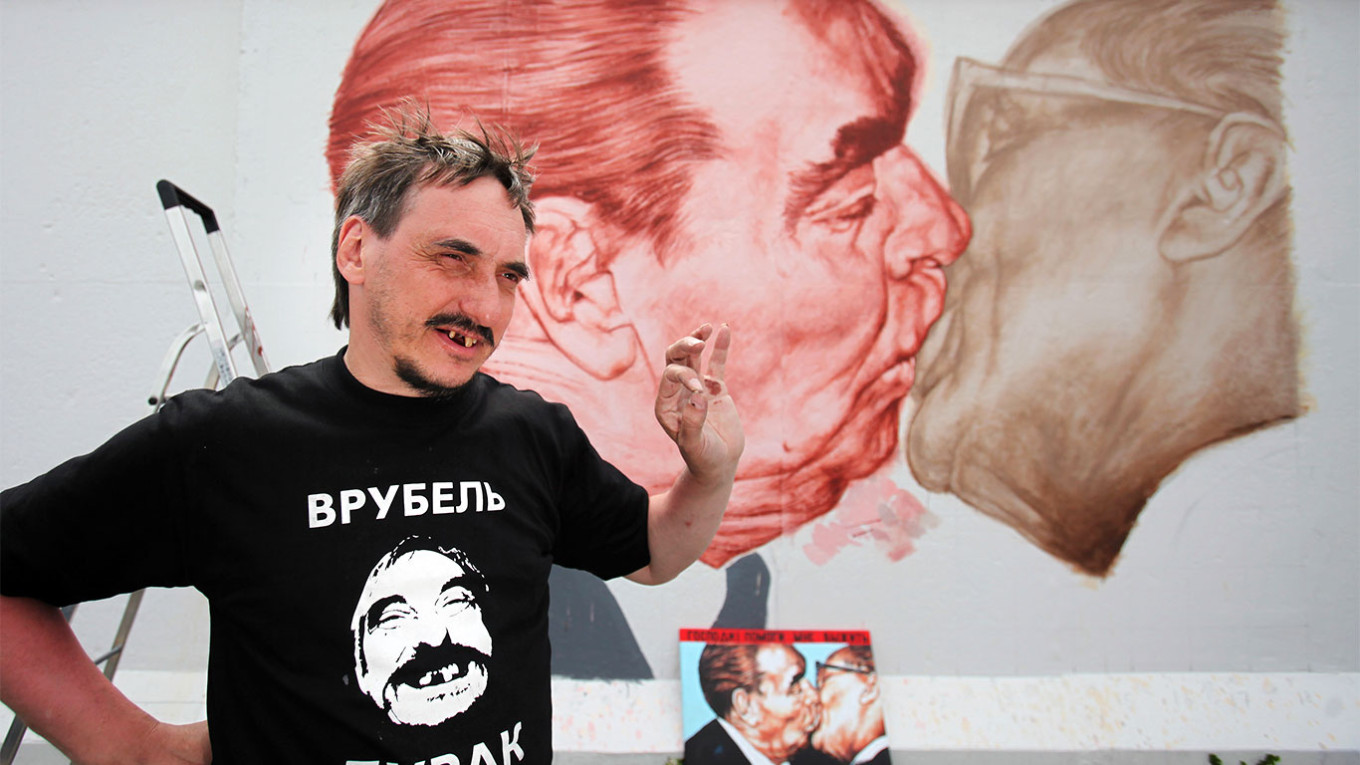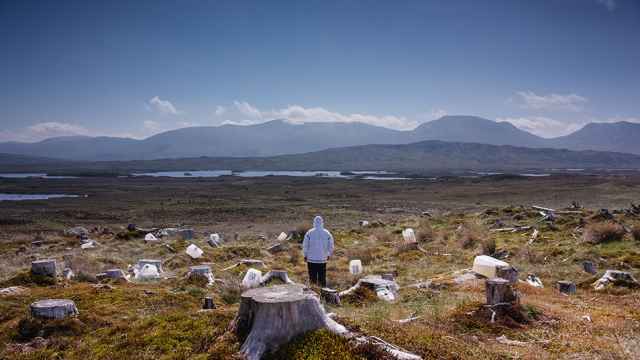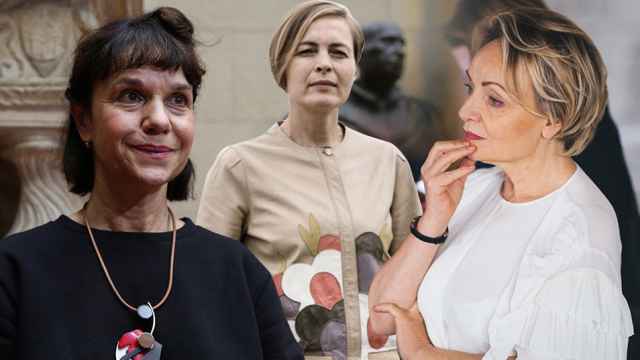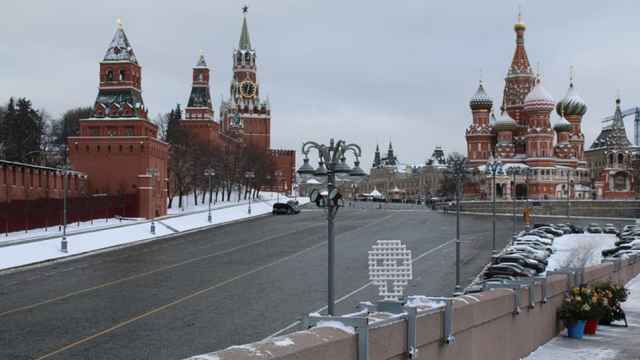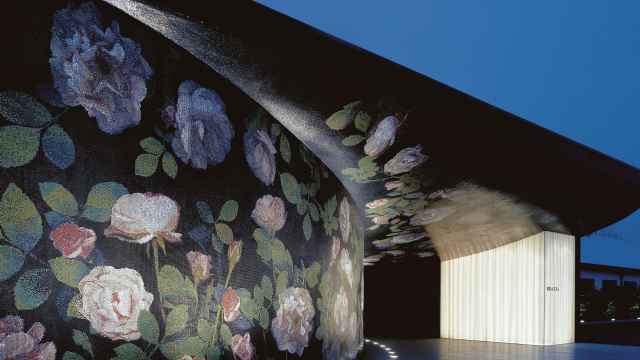Dmitry Vrubel, the Russian painter who shot to fame with a work on the Berlin Wall depicting Soviet and East German communist leaders kissing, has died in the German capital at age 62.
One of the best known Berlin Wall graffiti pieces, Vrubel’s 1990 work titled “My God, Help Me to Survive This Deadly Love” features a reproduction of a photograph capturing Soviet leader Leonid Brezhnev kissing East German leader Erich Honecker in 1979.
News of Vrubel’s death was shared by Milena Orlova, editor-in-chief of the Art Newspaper Russia, late Sunday.
Tributes from fans and colleagues poured in on Vrubel’s Facebook page after news of his death spread late Sunday.
Vrubel was hospitalized with suspected coronavirus in late June, his wife, artist Viktoria Timofeyeva, has said. He was placed in a medically induced coma in mid-July due to heart failure, Timofeyeva wrote on Facebook.
Born in Moscow in 1960, Vrubel originally moved to Berlin in 1990, where he almost immediately became famous for his wall painting.
Vrubel had studied in art school, although he didn't graduate. But in 1983 he was accepted as a member of the Artists Union of the U.S.S.R.
Vrubel was an early and constant art dissident. In 1986 he organized unofficial — and illegal — art shows in his apartment, and the next year he joined the “Avant-Garde Club” (Russian abbreviation KLAVA), which included some of the best non-official cultural figures of the times, including artist and writer Dmitry Prigov and poet Lev Rubinstein.
In Moscow in 2020 Vrubel was a witness for defense of two curators charged with inciting religious enmity with a show called “Forbidden Art-2006” at the Sakharov Center.
At the time he said, “We are once again in a country where the state supports one position and esthetic and calls everything else illegal. It’s horrifying.”
A Message from The Moscow Times:
Dear readers,
We are facing unprecedented challenges. Russia's Prosecutor General's Office has designated The Moscow Times as an "undesirable" organization, criminalizing our work and putting our staff at risk of prosecution. This follows our earlier unjust labeling as a "foreign agent."
These actions are direct attempts to silence independent journalism in Russia. The authorities claim our work "discredits the decisions of the Russian leadership." We see things differently: we strive to provide accurate, unbiased reporting on Russia.
We, the journalists of The Moscow Times, refuse to be silenced. But to continue our work, we need your help.
Your support, no matter how small, makes a world of difference. If you can, please support us monthly starting from just $2. It's quick to set up, and every contribution makes a significant impact.
By supporting The Moscow Times, you're defending open, independent journalism in the face of repression. Thank you for standing with us.
Remind me later.


